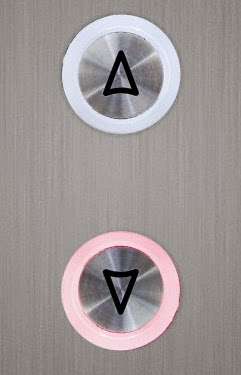Brady Solicitors property management specialists take a look at the latest twist in the long-running Solarbeta ‘lift case’, and consider the service charge implications for managing agents and leaseholders alike.
Solarbeta is a tenant-owned, not for profit management company, with three blocks on an estate in Croydon, Surrey. One of the blocks is social housing, and there are two private residential blocks – Solar Court and Beta Court.
Solar Court has 23 flats and a lift, whereas the smaller Beta Court has two flats and no lift.
One of the Beta Court leaseholders had challenged their liability to pay towards the maintenance of this lift, on the basis that they had neither access to it nor use of it.
From LVT to the First-tier Tribunal…
The Solarbeta case has been back and forth in the property management court for almost six years. It first went to the LVT (as it was known then) in 2009, where the judge found in favour of the Beta Court leaseholder, determining that the cost of maintaining and repairing the lift could not be recovered via the service charge.
Unsurprisingly, the management company appealed and the decision was reversed in the LVT in 2012… only to be reversed back again in 2013.
The management company lodged a further appeal (hope you are keeping up), which was heard in 2014 and, guess what, the judge decided that the management company could in fact recover the costs of maintaining the lift through the service charge – regardless of whether or not the leaseholder had access to the lift.
The leaseholder’s arguments that they should only pay for the services from which they benefited were rejected.
“It is unlikely that the ground floor flat owners of Solar Court ever use the lift, but it would be absurd to say that they would not be obligated to pay a share of the associated costs. The fact that the two Beta Court flats are not obliged to pay a share of the associated costs fails for the same reason. Indeed, there are many items of expenditure … which will disproportionately benefit those residents but not benefit the two Beta Court flats at all. But the Management Company is specifically obligated to provide those services, and recover their costs through the Service Charge”.
It was held that the management company is specifically obligated to provide services such as lift maintenance and repair, and to recover the costs through a service charge from each leaseholder.
So how did the judge arrive at this decision?
The judge naturally turned straight to the lease, which was unusually brief and open-ended with regard to the management company’s obligations.
The lease referred to the estate as a whole and made no distinction between the two buildings (Solar Court and Beta Court) when setting out the service charge liability and repair obligations. This extract from the management company’s covenants highlights their generic nature:
To provide such other services and discharge such other obligations or functions as the Management Company shall reasonably from time to time consider necessary or expedient for the use and occupation of the flats in the Buildings and the Landlord’s adjoining premises.
This led to the judge’s determination that the service charge dispute centres on the management company’s obligations and not the leaseholder’s liability.
Anything that the management company considers ‘reasonable and expedient’ can be recouped through the service charge. Whether or not the leaseholder benefits from the services is irrelevant – the judge stated that there is ‘no room for arguing that specific elements of the global expenditure are not recoverable from particular tenants.’
The judge also commented that the lower service charge percentages paid by the Beta Court leaseholders (1.58% and 1.75% compared to 2.7% to 4.13% in Solar Court), reflect the different levels of services enjoyed by each block – including the lift.
So what does this mean for managing agents?
The key point is to understand what is in the lease.
Make sure you understand your obligations with regard to repair and maintenance – and do your best to ensure that your leaseholders understand their liabilities when it comes to paying their understand what is in the lease.
Your credit control might need some support when facing a leaseholder who is adamant that they should not be paying for certain services. By engaging in open communications with your leaseholders you can help them to understand why as well as what they need to pay but, if negotiation and persuasion fail, be prepared to seek legal advice.
And for leaseholders?
When you enter into an agreement with a landlord, you sign a lease, which underpins the nature of the agreement between you and the landlord.
If the lease does not expressly exclude you from contributing towards the cost of certain services then you will need to pay for them. Regardless of whether or not you receive the benefit of a lift, the view of a garden, or the use of the stairs – by signing and agreeing to the terms of the lease you will be contractually bound to pay for them.
The team at Brady Solicitors can help you to understand and interpret your lease, whether you are buying a new leasehold property or are already a leaseholder.
Help when things get tricky
If clear and open communications are not working, you need to know when to talk to the specialists. Brady Solicitors have an excellent track record in resolving service charge disputes at an early stage and, if things do escalate, we can support you at every step of the way in the FTT.

